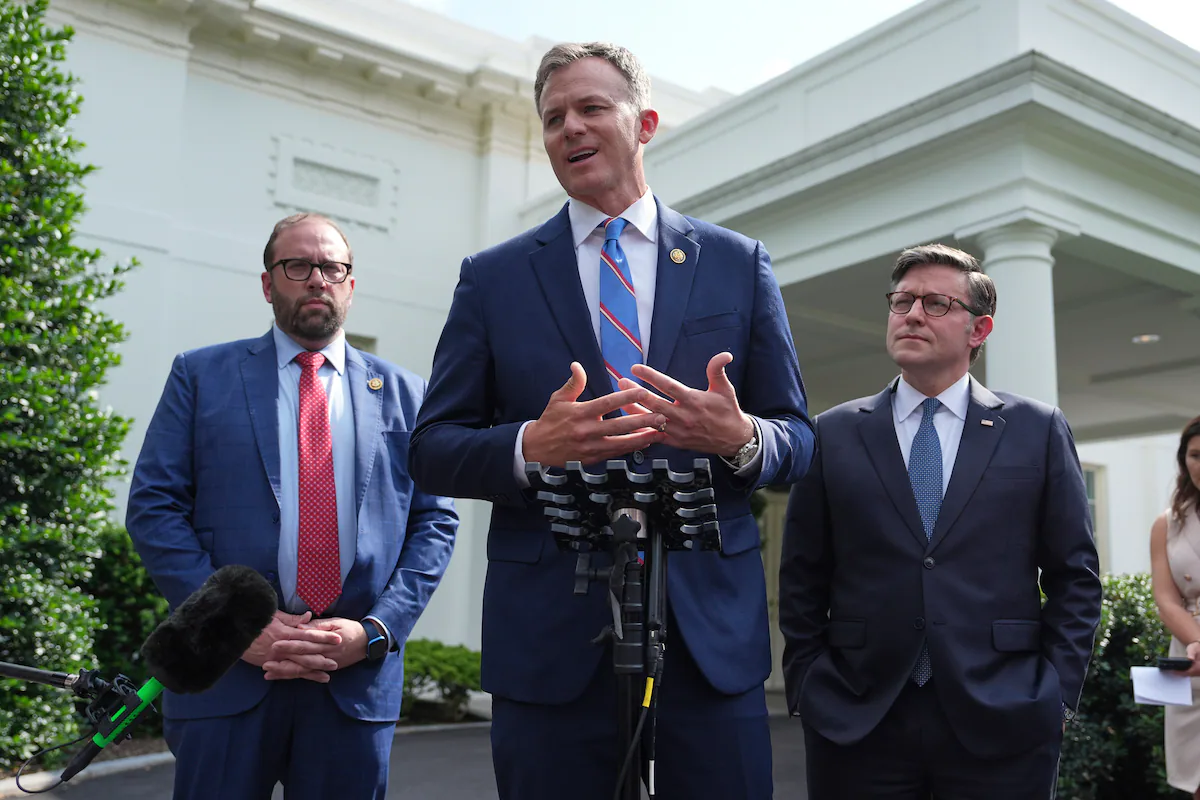
Nearly two weeks into the government shutdown, Rep. Blake Moore thinks things are about to get a lot worse.
As air traffic controllers begin to call out across the country and federal workers begin to miss paychecks, the Republican 1st District representative said he’s concerned Utahns will feel significant, damaging impacts from the closure if a budget bill isn’t passed soon.
“It’s getting worse and worse, and it’s going to become really, really dramatic and pretty bad in a week or two,” Moore, who serves as the House Republican caucus vice chair and Utah’s only member of congressional leadership, said during a recent interview.
Thirteen days into the shutdown, Congressional Democrats are pushing to reverse health care funding cuts passed earlier this year and extend enhanced tax credits, enacted during the COVID pandemic that help millions of Americans pay for Affordable Care Act health coverage.
Republicans need at least seven Democratic senators to cross the aisle in order to pass a continuing resolution, or CR, that would reopen the government for seven weeks. So far, just two Democrats and an independent who caucuses with the Democrats have crossed over.
With the government shuttered, “non-essential” government services and agencies like the IRS, Smithsonian museums and environmental and food inspections are closed. Essential services, like the Postal Service, TSA and military agencies, remain open, but those workers are not being paid.
In Utah, national parks remain open thanks to state support, though visitor services are limited.
Moore’s district includes Hill Air Force Base, which the congressman said he visited last week to discuss the impact of the shutdown with military members. There, he said, 800 civilian workers who were furloughed during the first week of the shutdown will be brought back to work without pay.
“Then you have military individuals literally going every day to their post and, as of October 15, they won’t have a paycheck,” he said.
Moore said he is concerned that this will create a sort of military brain drain, as federal workers consider leaving government work for the private sector.
“They’re incredibly talented and not making the type of salary that they could in the private sector. They do it for the mission,” he said. “That mission gets deteriorated when you go through this nonsensical [closure and] watch a bunch of Washington politicians bloviate back and forth.”
Additionally, Moore said the shutdown has come at a bad time for the IRS, as many people get tax extensions and file in October. The IRS office in Ogden, which Moore represents, employs some 6,000 Utahns, and though Moore said he didn’t know exactly how many were currently furloughed, it is, he said, a “concerning” number.
Moore also said he has begun to hear concerns about air traffic controllers calling out of work as they are forced to work without pay, triggering flight delays and air travel chaos. The lawmaker said he’d heard from a friend in Chicago that flights in the area were delayed, and NBC News reported last week that disruptions were spreading across the country, with flights out of Washington DC, Orlando, Newark and Nashville, among others, significantly delayed.
In Utah, Salt Lake International Airport officials are asking travellers to be patient and are working on arranging a way to provide the unpaid federal workers with basic necessities during the shutdown.
The blame for the disruption, Moore and other Republicans have argued, falls on Democrats, and he said he is frustrated Democrats have tied health care funding to the shutdown.
“When we talk about a shutdown, we’re talking about 12 specific appropriations bills,” he said. “None of them dictate what goes on with the Affordable Care Act. … You can’t solve [the] Obamacare debate discrepancy within an appropriations bill. They’re two completely separate buckets of funding.”
Earlier this month, Rep. Mike Kennedy, who represents Utah’s 3rd Congressional District, said he thinks government shutdowns should be banned, and that if lawmakers can’t come to a compromise on funding, there should be an automatic continuing resolution to retain current funding levels, a proposal he said he hoped would help end the “weaponization” of government shutdowns.
Moore said he agreed with his colleague.
“If you got rid of the threat of a shutdown, you would still be having good negotiations and compromise in the general appropriations process,” he said. “Just getting those [appropriations] done is a really, really difficult task, and I think it would be improved if we got rid of the potential for shutdowns.”